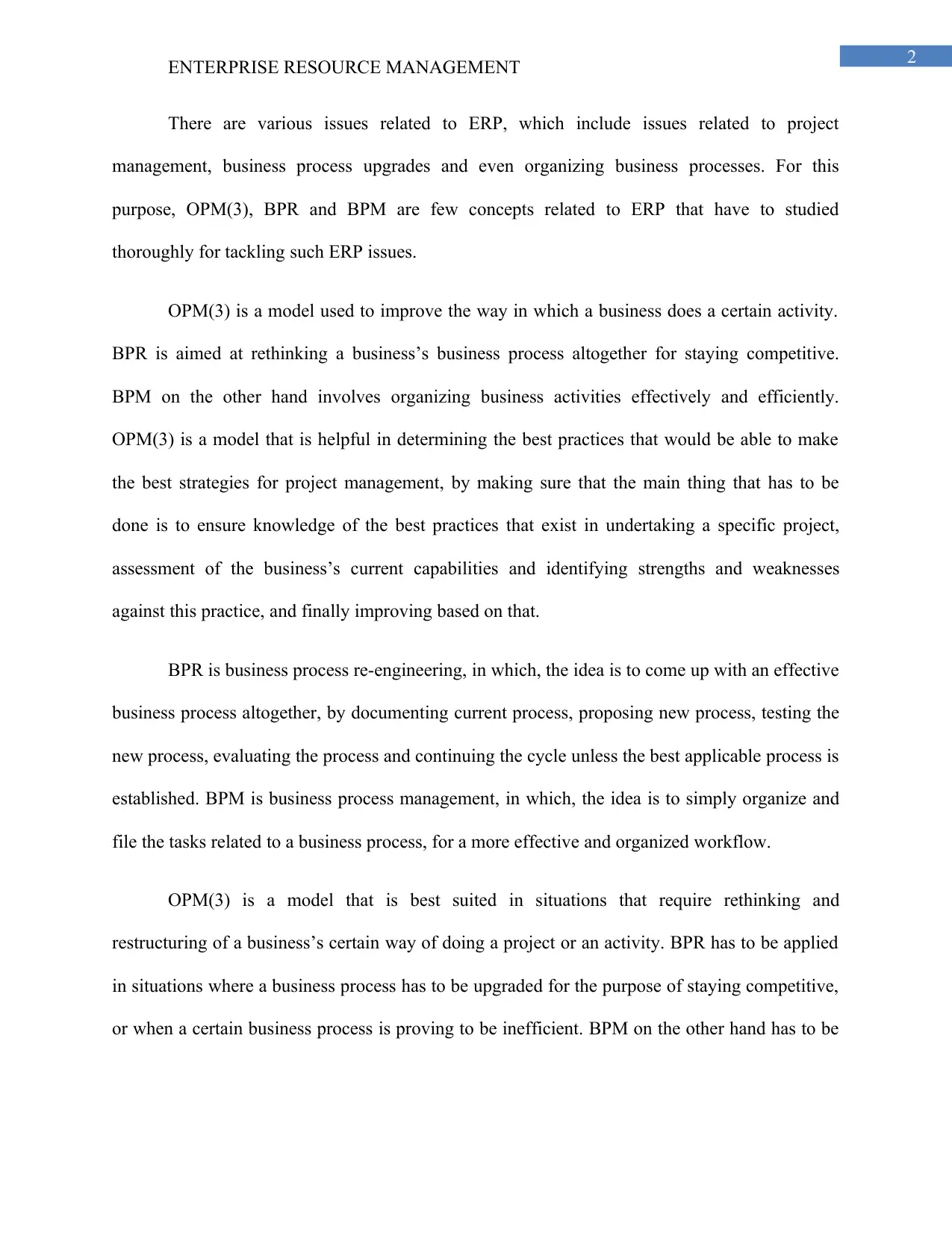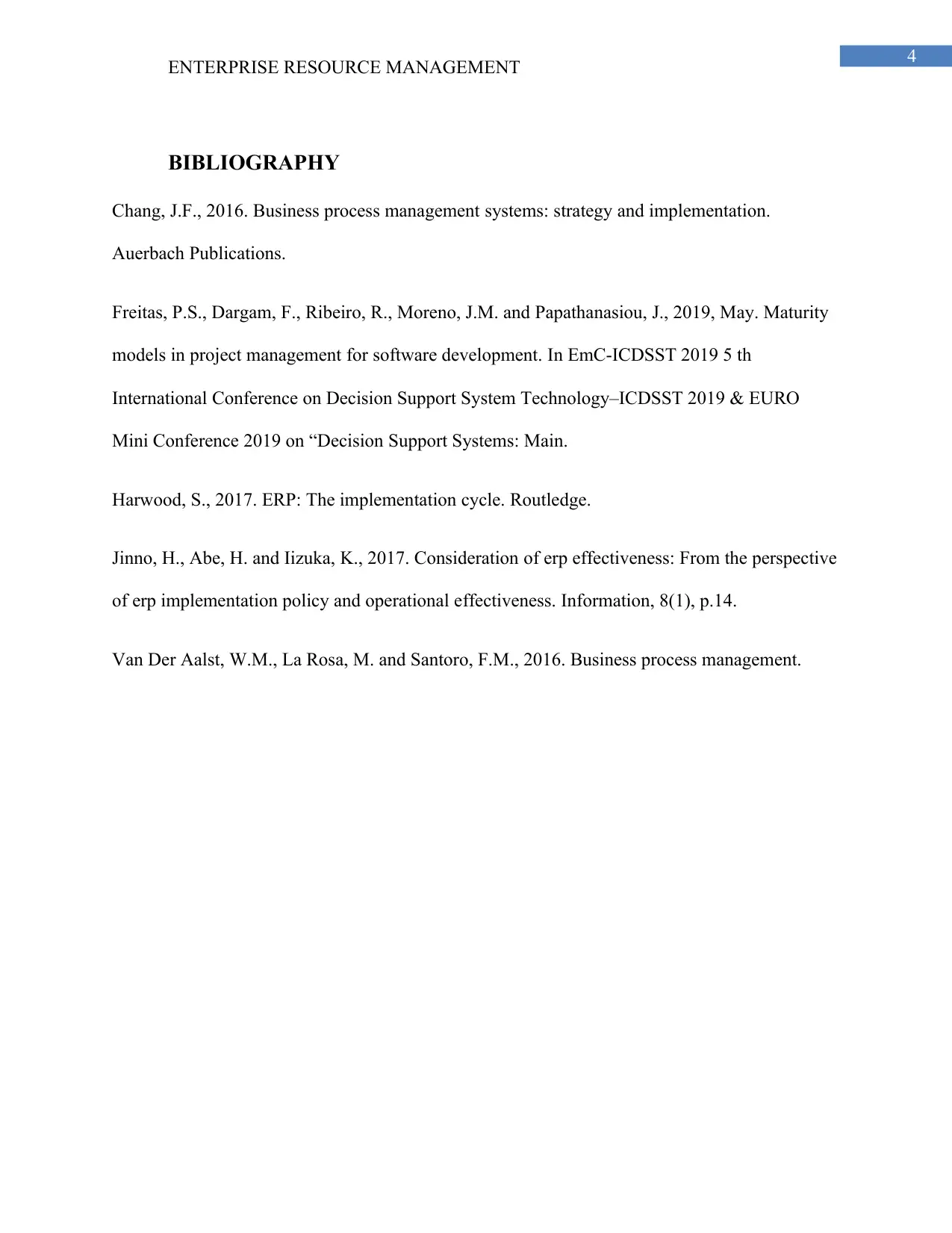Organizational Change and ERP: OPM3, BPR, and BPM Analysis Report
VerifiedAdded on 2022/10/06
|4
|542
|22
Report
AI Summary
This report delves into Enterprise Resource Management (ERP), focusing on key concepts such as OPM3 (Organizational Project Management Maturity Model), BPR (Business Process Re-engineering), and BPM (Business Process Management). It examines the importance of these concepts in addressing ERP-related issues, including project management, business process upgrades, and overall business process organization. The report explains OPM3's role in determining best practices for project management, BPR's approach to rethinking business processes for competitiveness, and BPM's function in organizing business activities for efficiency. Furthermore, the report highlights the appropriate application of each concept, emphasizing when to use OPM3, BPR, and BPM based on specific business needs, such as restructuring projects, upgrading processes, or organizing activities for cost, time, and energy efficiency. The report also emphasizes the importance of organizational commitment and change management during ERP implementation, as senior management's support is crucial for overcoming resistance and achieving success. This report provides a comprehensive understanding of these essential topics in the context of ERP systems and organizational change.
1 out of 4











![[object Object]](/_next/static/media/star-bottom.7253800d.svg)